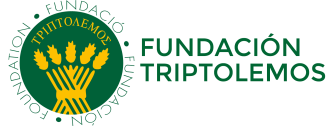 |
Luis González Vaqué, China-European Union Food Law Working Party, Triptolemos Foundation, Ibero-American Association for Food Law, summarized the contents of the book “The Food System. Globalization, sustainability, security and food culture ” warning that“One third of the food that is produced does not reach the consumer, and we run the risk, in Europe, of being isolated in plant genetic resources “.He stressed, as an idea to retain, “the green revolution”, which is addressed in one of the chapters of the book and the incorporation of the university, in the concept of the food system. A chapter in which Alejandro Tiana Ferrer, Ricardo Mairal Usón and Miguel Melendro Estefanía explain how the Unesco UNED-Triptolemos Chair can serve the objectives we have set for ourselves “Science and Innovation for Sustainable Development: Global Food Production and Safety”.
As a summary, it was referred to the introduction of the publication where it appears that “Each and every one of the chapters that make up this book have the same solid thread, a defined identity and, at the same time, they have very different characteristics and aspects. One of the constants in all of them is the availability of food, along with the concern for food security, understood precisely as the availability of food products, but also related to the problem of the economic accessibility of the citizen. They elect their leaders and expect them not only to organize subsistence and food training, but also to develop an effective collective program that guarantees sustainability for the protection of the environment … That is, they convey their concern and hope at the same time “. |
 |


